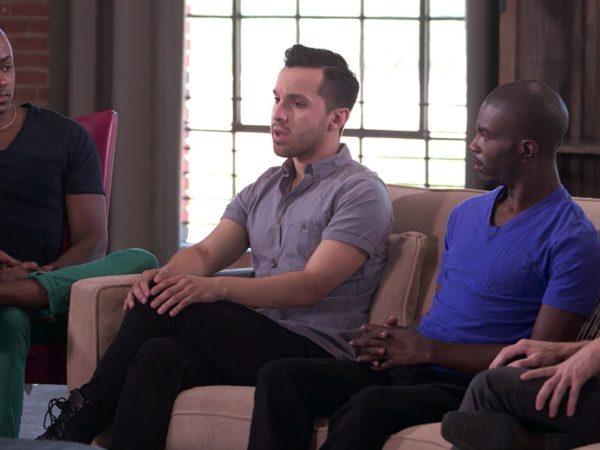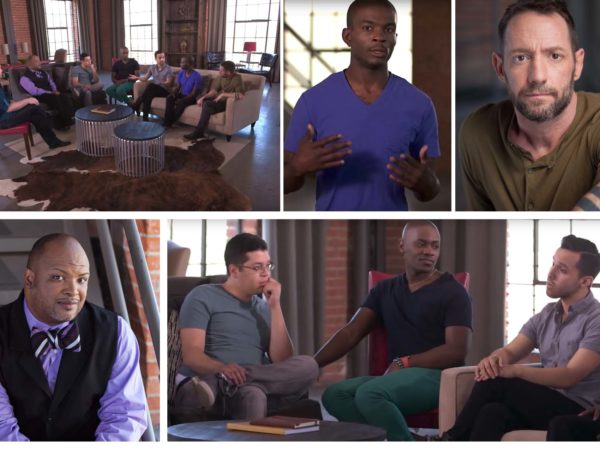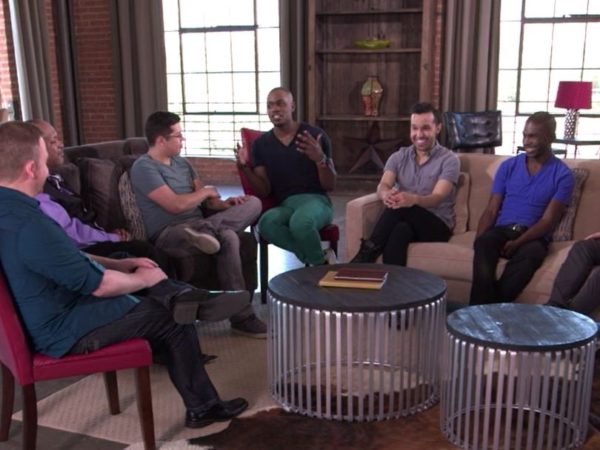– We are so lucky to live in these times.
– With marriage equality and equal rights, I think there is a lot to celebrate.
– When we collectively are able to come together, we can get a lot of stuff done; we’ve shown that.
– So now it’s time to take all of that energy and start paying attention to HIV again.
– HIV rates are on the rise amongst gay men in America. – We took our eye off the ball. We thought that we had this under control, and we didn’t.
– No one has to die today from HIV. The sad truth is that people still are.
– My friend Julian died in 2013 of HIV. He was just 36 years old.
– We need to talk about what’s really going on.
– There was a period of time where the HIV community worked so hard to disassociate the disease just from the gay community that I think in some ways we maybe forgot that we are also still very much dealing with this disease.
– I feel like people talk about it less and less. In some kind of way, there’s a strange don’t ask, don’t tell policy around it.
– The virus is invisible. We can’t see it, it’s manageable. It’s so manageable that now we can avoid it and move on with our lives.
– My age group specifically thinks that the fight has been fought and they don’t need to do anything.
– I think that we assumed that the conversation was already happening and that the knowledge was already here, so I think in urban gay meccas like San Francisco, there’s this assumption that the information is already here and being talked about.
– Are we talking about it? How often do you talk about it?
– The ideal of this unified community with the rainbow flag is an ideal, but I think we’re a very divided community in a lot of ways.
– I think that some of the most hurtful stigmas are coming from inside the gay community.
– When I first learned I was HIV positive, I took all of that stigma that’s out there in the community upon myself and that idea that I was somehow dirty and tainted.
– Still today, people will whisper something about someone’s HIV status.
– And the tone is always as if they wanna know what has he done that we would never do.
– I’m positive, and it took me five years to be able to finally say that out loud in group settings. A feeling like I became one of those people, and I think that it’s really easy for us to separate those people from us.
– I wouldn’t be with my boyfriend if we were on this side of this dividing line. We’ve been together three years, and it helps give me strength to realize that my status doesn’t have to be something that’s gonna separate me from someone.
– It’s such a weight off your shoulders when you start talking honestly and you don’t have to think about or edit yourself with your friends.
– When it comes to having sex, even with a complete stranger, so many people are ready to just sign up and go for it. But when it comes to talking about sex, it’s a totally different ballgame.
– And if you don’t bring it up and I don’t bring it up and we both are having unprotected sex, it’s this assumed risk that people are just like well, they didn’t bring it up, I didn’t bring it up, so we must know what we’re doing.
– We know, statistically, that most of infections are not happening from the person who’s positive and knows their status. Most infections happen from people who are newly infected and they don’t know they’re infected.
– My responsibility as a HIV-negative man is to stay negative.
– It’s very easy to say I’m not at risk. And when I think about my own life and my own experience, there have definitely been times where it could’ve been me.
– I was with someone for two years. He did not tell me he was positive. I don’t know how many times I asked, I don’t know if I ever asked, but I assumed he’s negative because he didn’t tell me he was positive. I got infected. The bottom line is I failed to find out his status.
– I’m single, and I actually do think about HIV a lot because I’m dating or I’m hooking up. So I like to put that conversation at the forefront.
A diverse group of gay men from San Francisco — some living with HIV and others who are not — came together to talk about HIV/AIDS. In this revealing and candid exchange, the men talk about what’s really going on, but not always voiced. They show the power open, honest communication has on our relationships, our health and our community.


